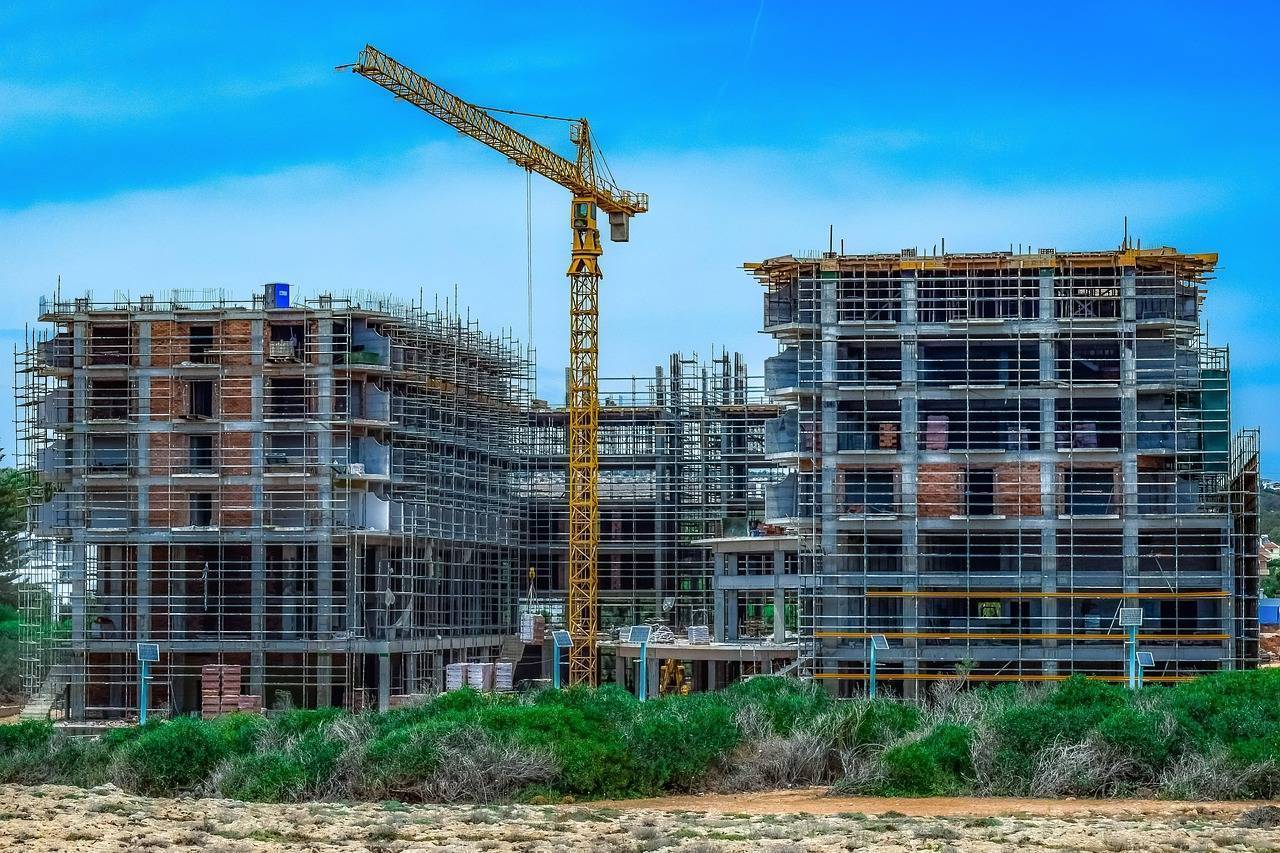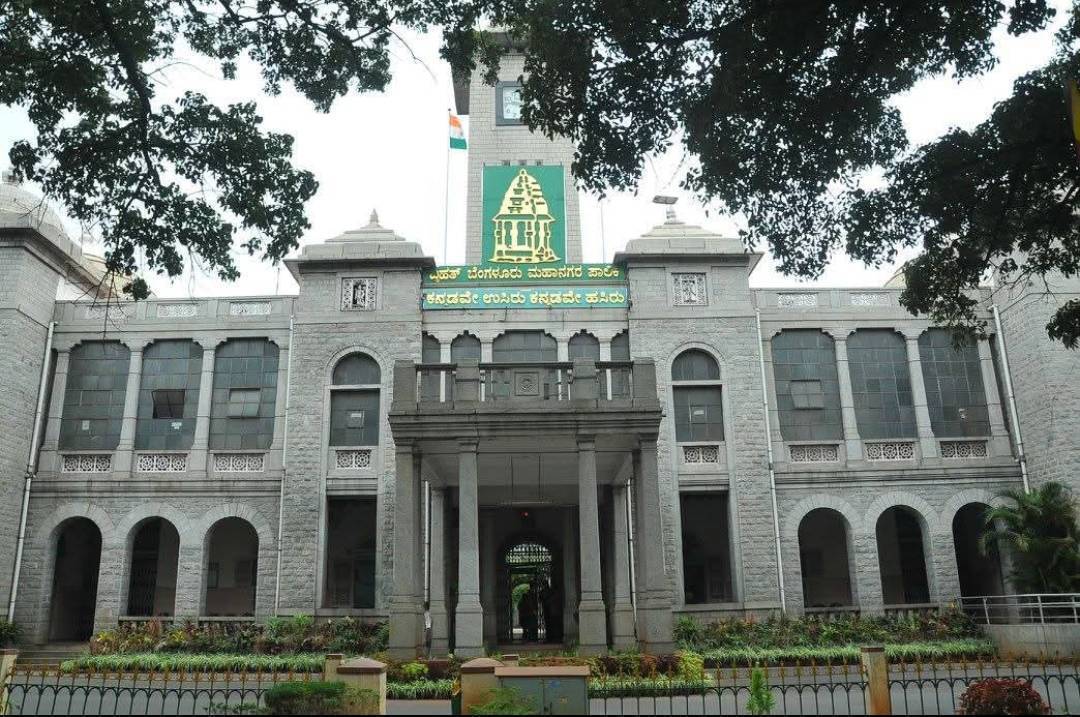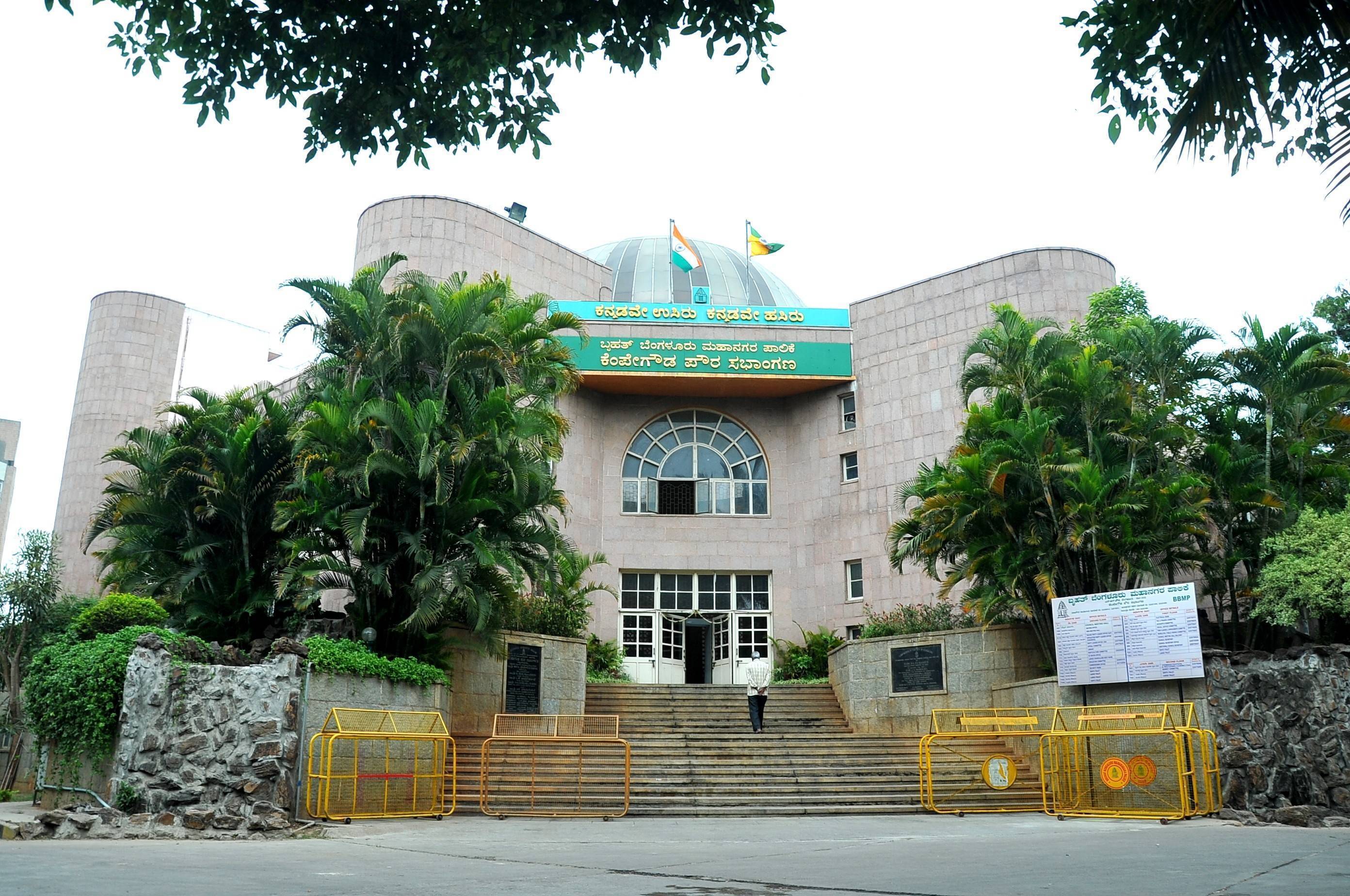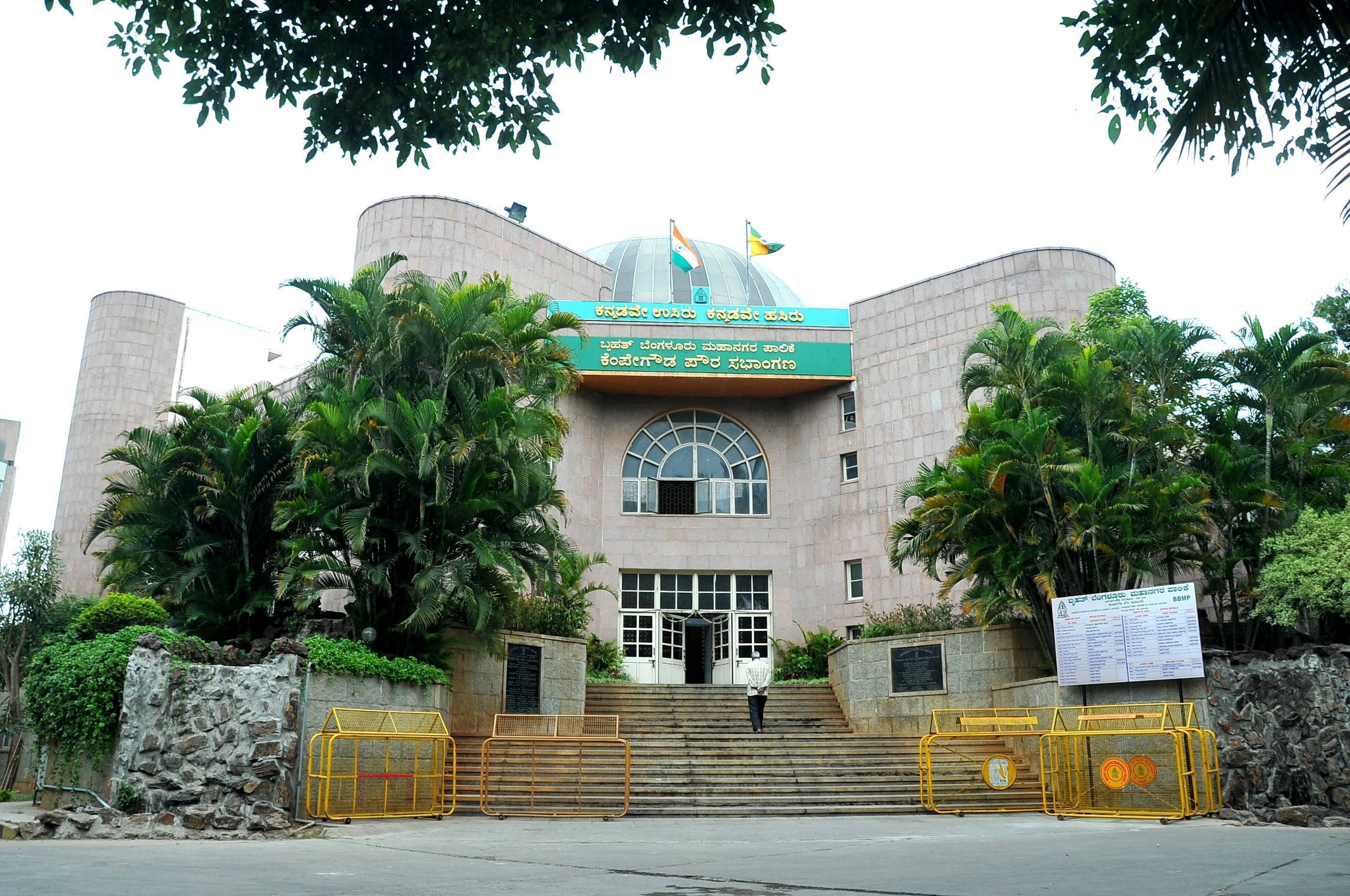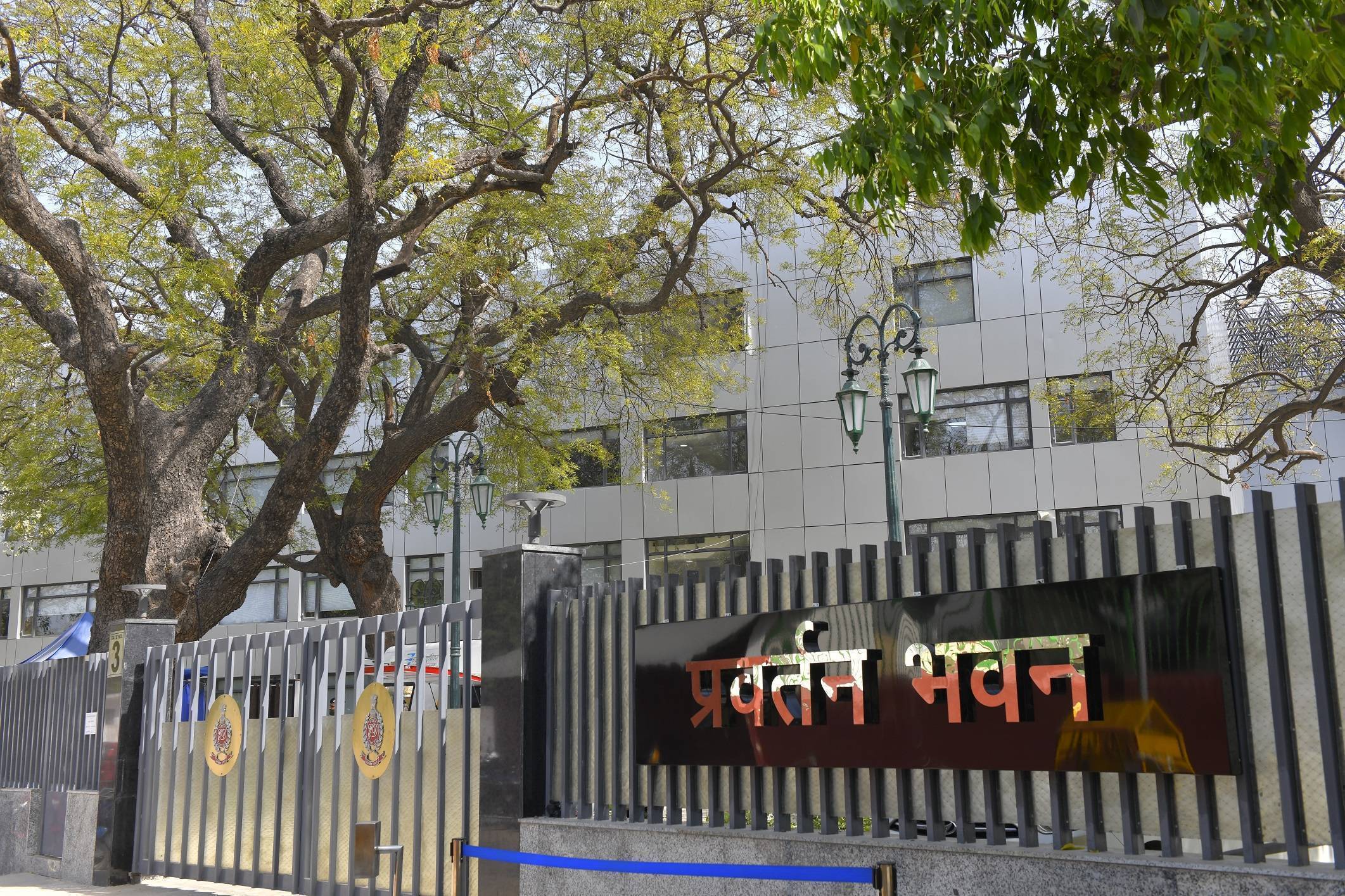The Karnataka Real Estate Regulatory Authority (KRERA) has reported that more than 2,600 real estate projects across Karnataka have missed their scheduled completion deadlines. Many of these projects are now facing indefinite delays, with Bengaluru being the most affected city. The capital alone accounts for 1,301 stalled developments, according to the latest KRERA data.
In addition, 1,007 projects have formally applied for deadline extensions, which are currently under review by the authority. KRERA has issued a public warning on its website stating that the registration period for a number of projects has expired and remains unrenewed, cautioning buyers that dealing with these projects could carry significant risks.
Industry experts and officials point to several reasons behind the widespread delays in Karnataka’s real estate sector. One of the primary causes is the complex regulatory environment. Developers often face lengthy processes to obtain various approvals and clearances from multiple government departments. These include environmental clearances, land use permissions, and local municipal approvals, which can collectively extend over several months or even years. This regulatory backlog can stall construction activities before they even begin.
Financial issues also play a major role in project delays. Developers generally depend on a mix of customer advances and bank loans to fund construction. However, when sales slow down or financial conditions tighten, developers can experience cash flow problems that halt ongoing projects. In some cases, funds meant for one project are redirected to support other developments within the same company, exacerbating the financial crunch and further delaying completion.
Another significant factor contributing to delays is poor planning and project management. Some developers launch projects without sufficient feasibility studies or underestimate the timelines and costs involved. These miscalculations often result in logistical and execution difficulties, which slow down progress on the ground.
The delays have directly affected homebuyers in Karnataka, many of whom are still waiting to take possession of their homes. As of December 31, 2024, developers in the state owed homebuyers approximately ₹667 crore in refunds due to these delays. This figure was compiled from records maintained by KRERA and reviewed by HT.com.
KRERA had approved a total of 1,660 recovery claims amounting to ₹758.8 crore. However, refunds have been successfully recovered in only 233 cases, which represents roughly 14% of the total recovery amount, equating to ₹91.8 crore. This low recovery rate highlights the challenges homebuyers face in getting timely compensation.
The pending refund amount has been steadily increasing. At the end of January 2024, the outstanding refunds from stalled projects stood at over ₹486 crore. Over the next eleven months, this amount rose by nearly 37%, reaching the current figure of ₹667 crore by the end of December 2024.
Bengaluru, the IT and business hub of Karnataka, bears the brunt of these delays. With over 1,300 projects stalled in the city alone, homebuyers in Bengaluru face some of the longest waiting periods. The city’s rapid urbanization has led to an explosion of real estate projects, but this growth has been marred by delays, impacting thousands of buyers.
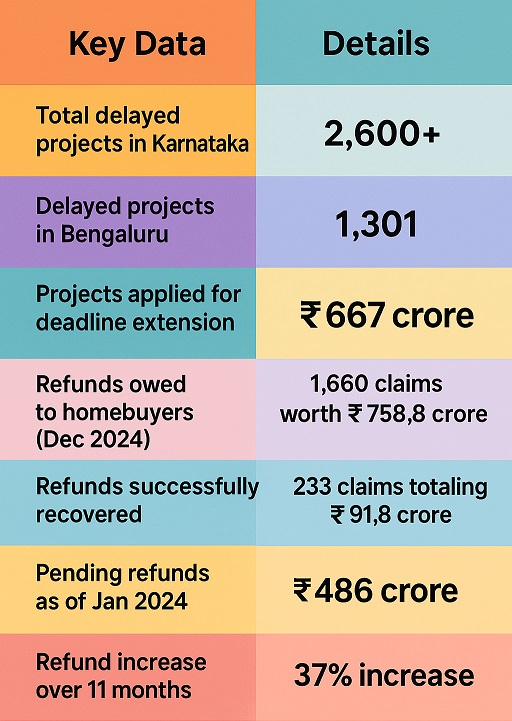
The combination of regulatory challenges, financial difficulties, and planning issues has contributed to a slowdown in the delivery of promised homes. For many buyers, the delay translates not only into uncertainty but also financial strain, as they may have committed to mortgage payments and other costs without possession of the property.
KRERA has been actively monitoring delayed projects and is in the process of reviewing extension requests from developers. The regulatory authority’s public warnings aim to increase transparency and caution potential buyers about the risks involved in dealing with unregistered or expired projects.
KRERA has been actively monitoring delayed projects and is in the process of reviewing extension requests from developers. The regulatory authority’s public warnings aim to increase transparency and caution potential buyers about the risks involved in dealing with unregistered or expired projects.
Homebuyers can thoroughly verify the registration status of projects before investing and to remain aware of their rights under the Real Estate (Regulation and Development) Act. The law mandates that developers must complete projects within the stipulated timelines or face penalties, including refund obligations.

